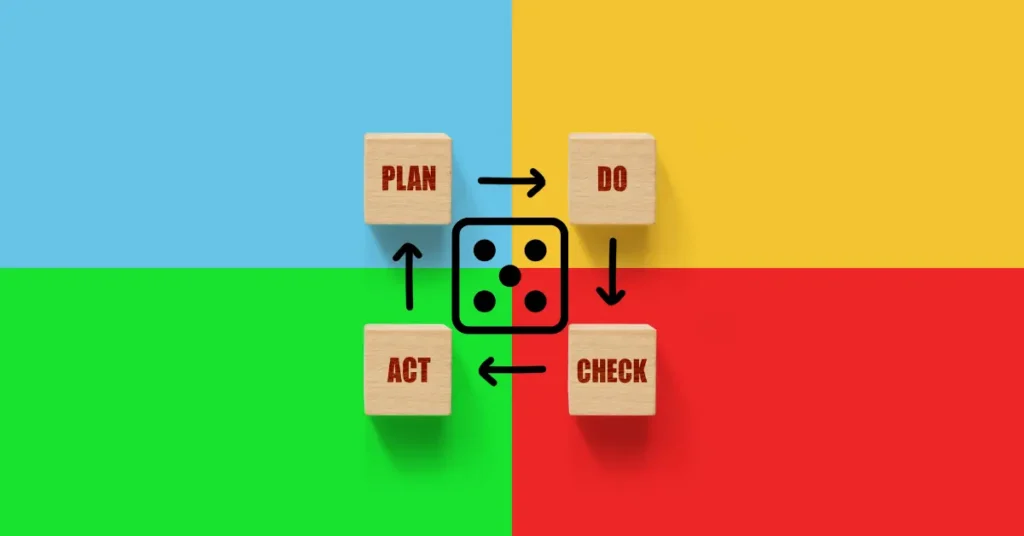Why Dice Session Planning Matters
Playing dice may seem like a simple act of chance, but successful players understand the importance of structure. Dice session planning helps players control emotions, manage time wisely, and avoid the impulsiveness that leads to poor decisions. By setting rules for when and how you play, you can increase your long-term chances of winning and avoid unnecessary losses.
Setting Clear Objectives for Each Session
Before starting any dice game, it’s essential to define your session goals. This could mean aiming for a set profit, limiting losses, or practicing a specific strategy. Without an objective, players are more likely to chase losses or continue playing long after they should have stopped. A clear target provides focus and reduces emotional interference.
Short-Term vs Long-Term Goals
Short-term goals can include things like doubling your bankroll in one session or testing a new betting strategy. Long-term goals, on the other hand, might involve maintaining a positive win/loss ratio over time or reaching a target bankroll in several weeks. Balancing both types of goals keeps your play grounded and purposeful.
Time Management in Dice Gambling
It’s easy to lose track of time when you’re caught up in the action of rolling dice. That’s why setting time limits is one of the smartest strategies a dice player can use. Decide in advance how long your session will last. This not only protects your mental stamina but also helps avoid tilt—a state where frustration clouds judgment.
Using Timers and Breaks
Many experienced players use phone alarms or countdown timers to stick to their session duration. Taking breaks every 30 or 60 minutes allows your mind to reset and your emotions to settle. Even short pauses can drastically improve decision-making and concentration.
Structuring Your Bankroll for Sessions
Even with skill and strategy, dice games remain high-variance. That’s why proper bankroll allocation for each session is key. Divide your total bankroll into smaller portions dedicated to separate play sessions. This reduces the risk of losing everything in one go and adds a layer of protection against streaky results.
Table: Example Session Bankroll Setup
| Total Bankroll | Bankroll Per Session | Max Bet Per Roll | Session Duration |
|---|---|---|---|
| $1,000 | $100 | $5 | 1 Hour |
| $500 | $50 | $2.50 | 30 Minutes |
| $2,000 | $200 | $10 | 1.5 Hours |
Sticking to a Strategy
Every session should begin with a defined betting strategy. Whether you use Martingale, flat betting, or another method, the key is to stick to it consistently. Changing tactics mid-session—especially under emotional stress—can be damaging. Strategy adherence is one of the main differences between casual players and disciplined ones.
Reviewing Results After Each Session
Once your session ends, take time to review your performance. Did you stick to your time and bankroll limits? Did your strategy produce the expected results? Keeping a session log helps identify patterns in your play and offers insights for improvement. Over time, these reviews become invaluable tools for growth.
Mental Preparation and Focus
Winning dice players treat every session like a performance. That means preparing mentally before starting. Make sure you’re well-rested, distraction-free, and emotionally stable. Playing while tired, angry, or bored can easily lead to mistakes. Treat your play sessions like serious tasks—because they are, especially when real money is involved.
Creating a Routine
Many successful players follow a routine before they begin. This could include reviewing notes, watching a few practice rolls, or setting up their betting interface in a clean, organized space. A repeatable routine conditions your mind to focus and minimizes unnecessary distractions.
Knowing When to End the Session
One of the most important parts of session planning is knowing when to stop. Whether you hit your profit target, reached your time limit, or maxed out your stop-loss, the session should end on your terms—not based on emotions. Learning to walk away is a skill that pays off in the long run.
Final Thoughts: Structure Brings Stability
Dice session planning might not sound exciting, but it’s a foundational skill for any serious player. By managing time, emotions, and bankroll effectively, you gain more control over your outcomes. Structured play leads to fewer mistakes and better long-term results. So the next time you sit down to roll, don’t just gamble—plan to win.
Don’t miss:



